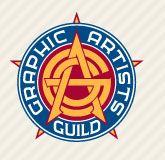Over the holidays, writer Peter David announced on his blog that he had suffered a stroke. On New Year's Eve, his wife Kathleen explained more, and another update followed Tuesday. She's planning to let people know of David's recovery on a daily basis.
Our thoughts are definitely with him and his family and friends. As the husband of someone with multiple sclerosis and lupus, I can somewhat relate to what they're going through. A health scare like what they're going through is just that, scary. Really, it's downright terrifying. In addition to the emotional response and challenging medical decisions to be made, there's also the question of how to pay for the ambulance ride, CAT scan, MRI, multiple other tests, medication, physical therapy, and whatever else. I don't know David's healthcare situation, but it reminded me how many freelancers and self-employed workers, which is the vast majority of comic book creators, have little to no healthcare benefits of any kind.
Rantz Hoseley recently sent out to creators and other industry figures a rough outline for a proposed American Sequential Arts Guild, which would include access to healthcare coverage for members. Note that he is not proposing a union, but instead an advocacy group. Some discussion ensued, like on this thread at The Beat. But I haven't seen much movement since. Perhaps it's happening privately, but based on past incidents, I fear it's not.
In 2010, Tony Harris was working on creating the Sequential Arts and Entertainment Guild (SAEG, pronounced "sage"). Discussions were held on Twitter, and it seemed like some momentum was gathering, with professionals like Steve Niles and Ron Marz joining in, and allegedly some "big names" expressing interest. But nothing ever came of it.
The only time the comics industry has successfully had a guild was briefly in 1978. Neal Adams formed the Comics Creators Guild, which had a healthy roster of the day's top creators as members. Unfortunately the "DC Implosion" of '78 left too many people unemployed and it fizzled away.
There is the National Cartoonists Society and more regional organizations, such as the Comic Art Professional Society and Comicbook Artists Guild, but they are primarily focused to providing networking opportunities. There are guilds and unions that can help portions of the industry, such as the Writers Guild of America (West and East) and the Graphic Artists Guild, and while they may fulfill the need for healthcare assistance, they aren't as familiar with the unique situations of the comics industry and may not always consider comics work as a qualifying job. Plus relying on those other organizations still leaves colorists, letterers, independent editors and others out in the cold.
So is a comics guild possible? I hope so, but there are significant hurdles.
First are the geographic challenges. The comic book industry is most decidedly an international field. While the largest publishers are located in the United States, they utilize freelancers from across the globe. By the title he offers, Hoseley seems to be limiting his version to Americans, but that would eliminate a significant percentage of participants and weaken what the guild could accomplish. Including them in healthcare insurance might be difficult because of differing laws from country to country. For citizens of Canada and other countries that provide full healthcare coverage, health insurance may not even be a compelling reason to become a member.
Second is the different concerns for freelancers versus creators that work on their own creator-owned comics or webcomics. Hoseley's guild seems most focused on freelancers, but self-employed creators don't need to worry about fair page rates from publishers. For a guild to survive, it needs to be beneficial to as much as the industry as possible. And that means not just people working for Marvel and DC, but every sector of the industry: mid-sized publishers, small publishers, creators who work mostly in the book trade with graphic novels, producers of comic strips, minicomics, webcomics, digital comics and more. Are the needs of all of these people too varied? Can a single entity fairly represent everyone?
For those that suddenly find themselves in a frightening situation like Peter David does now, the industry really owes it to its creators to provide some kind of support that other industries provide. The Hero Initiative has been helping cover medical and other expenses for creators in need for a number of years now, but it's high time that something more than an emergency safety net with limited resources be put into place. With the New Year, it's time comics resolve to work together for some kind of form long-term solution.

